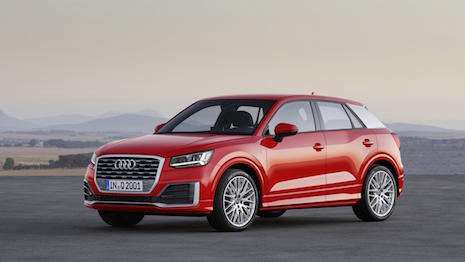- About
- Subscribe Now
- New York,
April 12, 2017

Insights from Frost & Sullivan suggest that a new business model will emerge for the luxury automotive industry, focusing on data, connectivity, customer centricity and cyber security.
As part of the firm’s Future of Mobility Growth Partnership Service, Frost & Sullivan is showing that spending in regards to software and solutions will reach $82.01 billion by 2020. Original equipment manufacturers will be driven by digital initiatives from chief digital officers.
"The new business model will consider data, connectivity and customer centricity along with cyber security," said Sriram Venkatraman, senior consultant at Frost & Sullivan Mobility, Chennai, India. "By 2020, chief digital officers will steer the strategic and digital initiatives of OEMs across luxury and economy brands."
Frost & Sullivan looks at businesses, their activities improvements, competencies and business models across five pillars such as connected supply chain, industrial IoT (IIoT) /Industry 4.0, connected and autonomous cars, digital retailing and mobility-as-a-service (MaaS).
Transforming the industry
Startups and technology innovation will continue to thoroughly disrupt the automotive industry, with as many as 1,700 new businesses emerging.
Luxury will not be the only sector affected by the shift from technology, but it will spread across all price points and brands.
Frost & Sullivan predicts that digital will overhaul the entire industry and everything involved from design and production to distribution and retail will see an impact. The traditional automotive business model will likely be completely transformed.
Business models will now be based on cyber security, connectivity, data and a seamless customer journey.
Spend for IT will rise to $168.8 billion in 2025 from $37.95 billion in 2015. The compound annual growth rate will reach 16.1 percent.
Jaguar's in-dashboard shell app
Electric vehicles, new mobility services, multi-modality, artificial intelligence and autonomous vehicles will be the center of investment, not just from luxury brands as they stand, but standard and all companies as well.
For instance, German automaker Audi has upped its investment in car rental service Silvercar as it looks to further innovate mobility for changing consumer needs.
Building on an existing relationship that dates back to 2012, Audi is acquiring the Austin, TX-based tech company that focuses on vehicle sharing. With renting and sharing replacing car ownership for many consumers, automakers are turning to alternative mobility developments to remain a part of consumers’ daily lives (see more).
Audi and Silvercar
With the growth of the Internet of Things, automakers will have to focus heavily on security and cyber security. These new technologies, while exciting and convenient, open the door for hackers and criminal IT behavior.
Consumer-facing and internal business affair platforms will both need to be integrated heavily with security features.
Companies will also begin to develop country-specific strategies for digital retail solutions in regards to new and used sales, aftermarket and service capability.
Additional insight
While the future of the automotive industry will be greatly shaped by technology, and many luxury brands have integrated technology into vehicles, the current retail landscape is not quite the same.
New research from L2 shows that between standard luxury and ultra-luxury auto brands, there is a substantial gap in digital offerings with the latter falling increasingly behind.
L2’s Auto 2017 Digital IQ Index shows that higher end luxury automakers such as Ferrari are continuing to focus on traditional media, neglecting offerings such as search and email. While these brands do particularly well on social, the lack of multichannel strategy can see these brands falling to those that do better (see more).
“More than 1,700 startups along with technology companies are expected to disrupt and transform the automotive industry as we know it,” Frost & Sullivan's Mr. Venkatraman said. “Digital transformation will affect the entire automotive value chain, including design, production, distribution and retail, reshaping the traditional automotive business model.
“The component hardware-driven automotive industry is shifting its focus and investments on software and solutions with spending rising rapidly and reaching $82.01 billion in 2020,” he said.
Share your thoughts. Click here